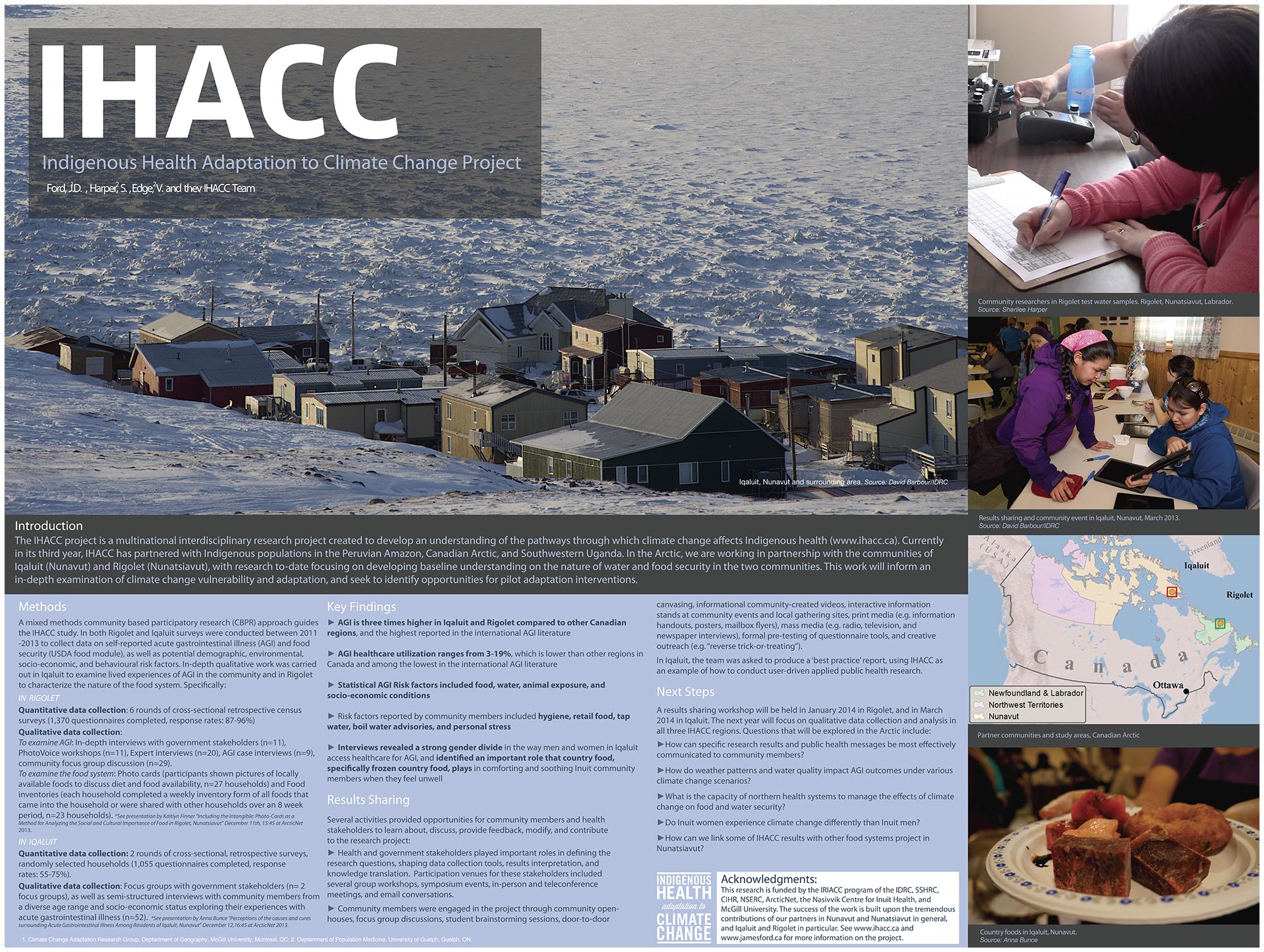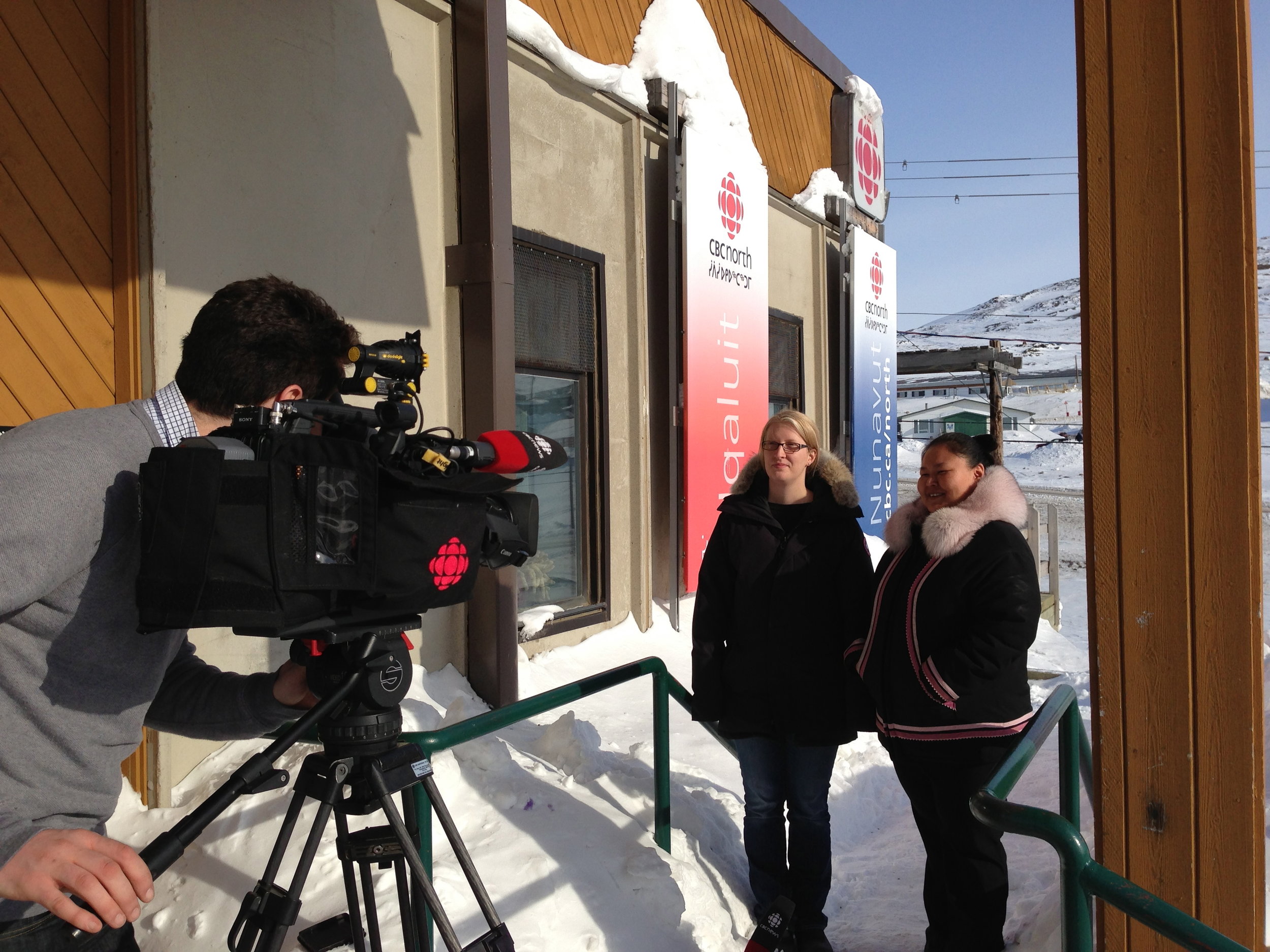Congratulations to Knut Kitching who received the Caribou Research and Management Award from the Beverly and Qamanirjuaq Caribou Management Board (BQCMB). About the award: "Since 1988, the BQCMB has helped post-secondary students learn more about the management and conservation of barren-ground caribou and their habitat through its Caribou Research and Management Award, sponsored by the Board’s Caribou Management Scholarship Fund. The annual award, administered by the Association of Canadian Universities for Northern Studies (ACUNS), currently carries a value of up to $1,500 and is open to anyone studying barren-ground caribou or their range in Canada. Preference is given to applicants from a caribou-range community and to those examining the Beverly and Qamanirjuaq Herds."
Kaitlyn Finner: Update from the field
Master’s student Kaitlyn Finner has spent the past week in Rigolet, Nunatsiavut meeting with community members to learn about their views of the household food inventories completed throughout summer and fall 2013. During August, September and November, 22 households participated in eight weeks of data collection. During the two, month-long periods, community members were asked to document all market and wild foods that passed through their homes. Kaitlyn and community research assistant Inez Shiwak are now meeting with residents to hear their reflections on the food inventory forms and process.
This research is being conducted in partnership with the Indigenous Health Adaptation to Climate Change (IHACC), and Inuit Traditional Knowledge for Adapting to the Health Effects of Climate Change (IK-ADAPT) projects and is run by the Rigolet Inuit Community Government.
IHACC activities at ArcticNet 2013
A number of IHACC project members participated in the ArticNet 2013 conference. Dr. James Ford presented a poster on IHACC that focused on the Arctic regional team's work, and chaired the session "Climate Adaptation, Health and Indigenous Knowledge (IK-ADAPT)".

The following three talks were also given at the conference during topical sessions:
- Including the Intangible: Photo-Cards as a Method for Analyzing the Social and Cultural Importance of Food in Rigolet, Nunatsiavut by Kaitlyn Finner
- Perceptions of the Causes and Cures Surrounding Acute Gastrointestinal Illness among Residents of Iqaluit, Nunavut by Anna Bunce
- From Community-Based to Community-Led: Understanding Research as a Climate Change Adaptation Strategy for Public Health in the North by Charlotte Wolfrey
IHACC back in Iqaluit to conduct final Food Security and Stomach Illness Survey
In September 2012, the Indigenous Health Adaptation to Climate Change (IHACC) project conducted a survey in Iqaluit. The survey collected information on food security and stomach illness (diarrhoea and/or vomiting) in Iqaluit. Local trained surveyors went door-to-door and conducted surveys with 532 randomly selected households in the city. A community event was then held at Parish Hall in March 2013. Free Bannock and Char Chowder were served, and community members were able to learn more about the health research project. Community members also learned about the IHACC project’s work on Indigenous health in Peru, Uganda, and the Canadian Arctic.
IHACC has now returned to Iqaluit, and local surveyors will be knocking on doors again to conduct more surveys from May 18th – May 31st, 2013. The survey takes place twice to see if food security or stomach illness changes in different seasons. The survey takes less than 20 minutes to complete. Each household that completes the survey will receive a $20 gift card to Baffin Gas, Baffin Canners or NorthMart. Households that complete the survey will also be entered for a chance to win one of 3 spectacular $500 prizes, as well as one of 20 $50 prizes! If you are not home when the surveyors knock on your door, they will leave a door hanger with all the information you need to get in touch with them should you wish to do the survey.
The whole team invites you and your family to participate in the survey. Local project partners and IHACC will use the information to create community programs. The research team will share the research results with the community in the fall 2013. We hope to meet you this May!
If you would like more information about the Indigenous Health Adaptation to Climate Change (IHACC) Project, please contact Sheri at harpers@uoguelph.ca or call 867-979-7201. You can also speak to the research team at the information table at North Mart on Saturday May 18th and 25th from 11am - 2pm.









